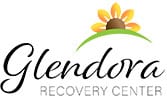For people struggling with depression, alcohol can be seen as a way to suppress negative thoughts and feelings. Although alcohol can seem like a temporary relief and a way to escape reality, there are many negative consequences to using alcohol as a way to cope with depression. The link between alcoholism and depression has been studied by many, and the conclusion has been the same each time. A person who suffers from alcoholism can be at increased risk for depression.
What Is Alcoholism?
Alcoholism is the inability to manage one’s drinking habits. It is the most severe form of alcohol abuse when an individual loses all ability to control their use of alcohol. There are many long-term conditions that are associated with long-term alcohol abuse. Most are physical effects and can have lasting effects on an individual’s body. Some of these issues include:
- Heart conditions (cardiomyopathy, high blood pressure, stroke)
- Liver diseases (alcoholic hepatitis, fibrosis, cirrhosis)
- Pancreatic problems (pancreatitis)
- Cognitive problems (memory loss, problems thinking clearly)
- Weakened immune system
Alcoholism can be detrimental to a person’s life. Not only can it cause physical symptoms, but it can also be damaging to the social aspects of one’s life. A person who suffers from alcohol use disorder spends a lot of time thinking about alcohol. Even if they are aware of the effects that alcohol is having on their body, personal life, or family, they are unable to control their alcohol intake.
What Is Depression?
Major depressive disorder is a medical illness that affects the way you think, feel, and act. Depression is more than just the feeling of being sad. It can affect the way an individual goes about their day-to-day life and can lead to suicidal thoughts and feelings. Some common symptoms of depression include the following:
- Loss of interest in hobbies and normal activities
- Lethargy and excessive tiredness
- Lack of sleep or insomnia
- Lack of appetite and/or weight loss
- Trouble concentrating, making decisions, and remembering things
The signs of depression are not always visible to others. In some cases, however, there is a noticeable difference in performance in school, work, or other social activities.
Does Alcoholism Cause Depression?
Alcohol is a product that is popularly advertised around the United States and in other countries worldwide. Drinking is an activity done in leisure, for special occasions, and sometimes there is no reason. Because of this, the dangers of alcohol and alcohol are not something that is discussed often. However, there are some severe side effects of drinking too much alcohol too often.
Heavy alcohol intake can alter the way the brain’s neurotransmitters function. Alcohol is known to fluctuate the chemicals in our brains which can be dangerous. To be healthy, our hormones should be balanced and should not experience rapid changes often. Inconsistencies of chemicals such as serotonin and dopamine can lead to depression and other health issues. According to a study done by PubMed, the amount of alcohol consumed and the more regular the intake, the more likely the person will develop depressive symptoms.
Can Depression Lead To Alcohol Abuse?
Depression can stem from a lot of different events that occur in a person’s life. For some, drinking alcohol is a way to feel better temporarily. However, alcohol can make them feel worse. Individuals who suffer from depression may find relief in self-medicating with alcohol use. However, increasing alcohol consumption to cope with depression will also increase the risk of more severe side effects and behaviors. The chemical imbalance that occurs from frequent alcohol use can cause a person to feel worse after the alcohol wears off. This can become a continuous cycle of drinking to avoid those feelings.
How are Alcoholism and Depression Similar?
These two conditions that can coincide have more similarities than one might think. If left untreated, the two can have life-long effects. The central connection between the two is that a majority of people do not receive treatment when it is needed. Here are a few more connections between alcoholism and depression.
Environmental Factors
Both of these conditions have similar environmental factors. The two can be triggered by environmental factors such as traumatic events, childhoods or home lives, and general stress in day-to-day life. While one thing might not always lead to another, there is a high chance of being affected by both of these conditions based on various environmental factors.
Genetics
Both alcoholism and depression are considered genetic. Although it cannot be determined from birth if these conditions will affect someone in their adult lives, the chances of acquiring these conditions in adulthood increase with family history.
Gender
Studies show that both alcoholism and depression are both more likely to affect women.
Get the Treatment You Need
It does not matter which condition came first. Both of these conditions deserve proper care and attention. There are many options available to people who are struggling with alcoholism and depression. There are a variety of therapies, support groups, and recovery centers that are designed to help people struggling with these conditions to begin healing.
Depression and alcoholism are severe conditions. Each person’s experience is different, but each person deserves the same level of care. Having both depression and an alcohol use disorder is not uncommon. Alcohol use can worsen depression and vice-versa. While some might believe it is treating their conditions on their own, they could be making it worse.
If you or someone you know is struggling with alcoholism or depression, do not wait to ask for help. Treatment for these conditions might take some time, but it will be worth it to live a longer and healthier life.
Glendora Recovery Center in Glendora, CA, Can Help You
Struggling with alcoholism can be incredibly difficult. If you or someone you know is struggling with alcoholism, do not hesitate to ask for help. Glendora Recovery Center is dedicated to helping our patients overcome their addictions and regain control of their lives. Contact us today to get started on your journey to an alcohol-free life.






